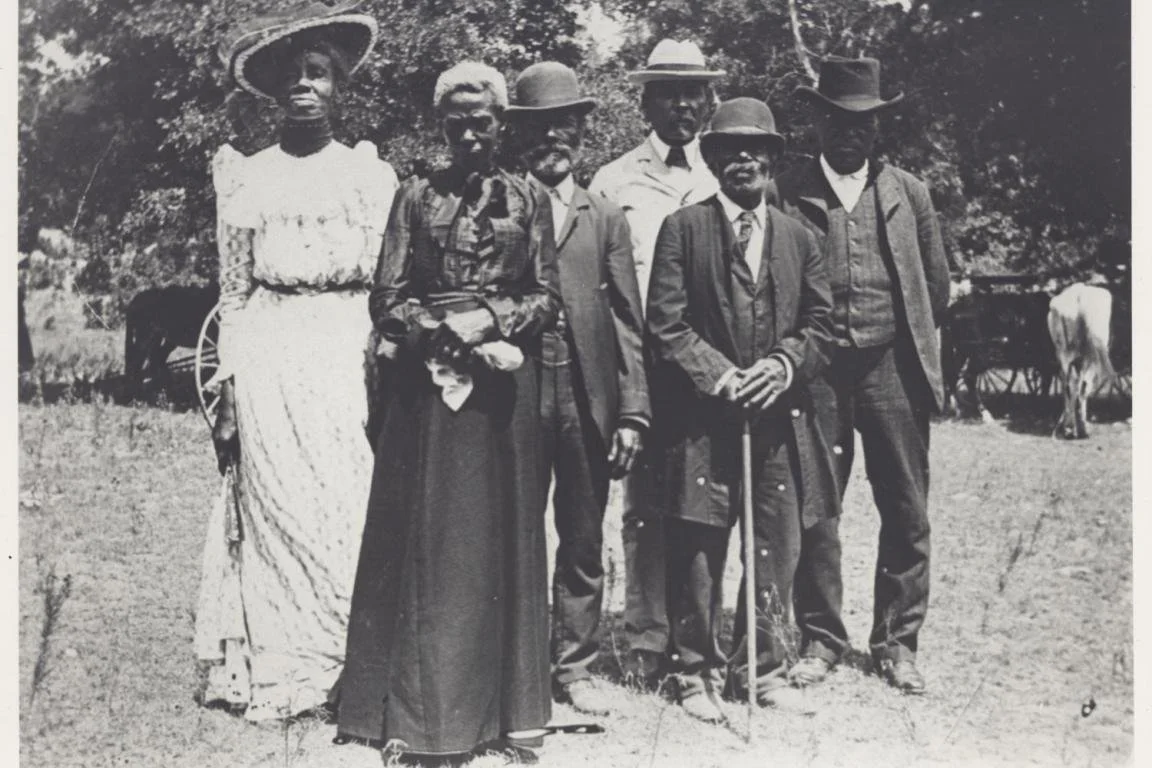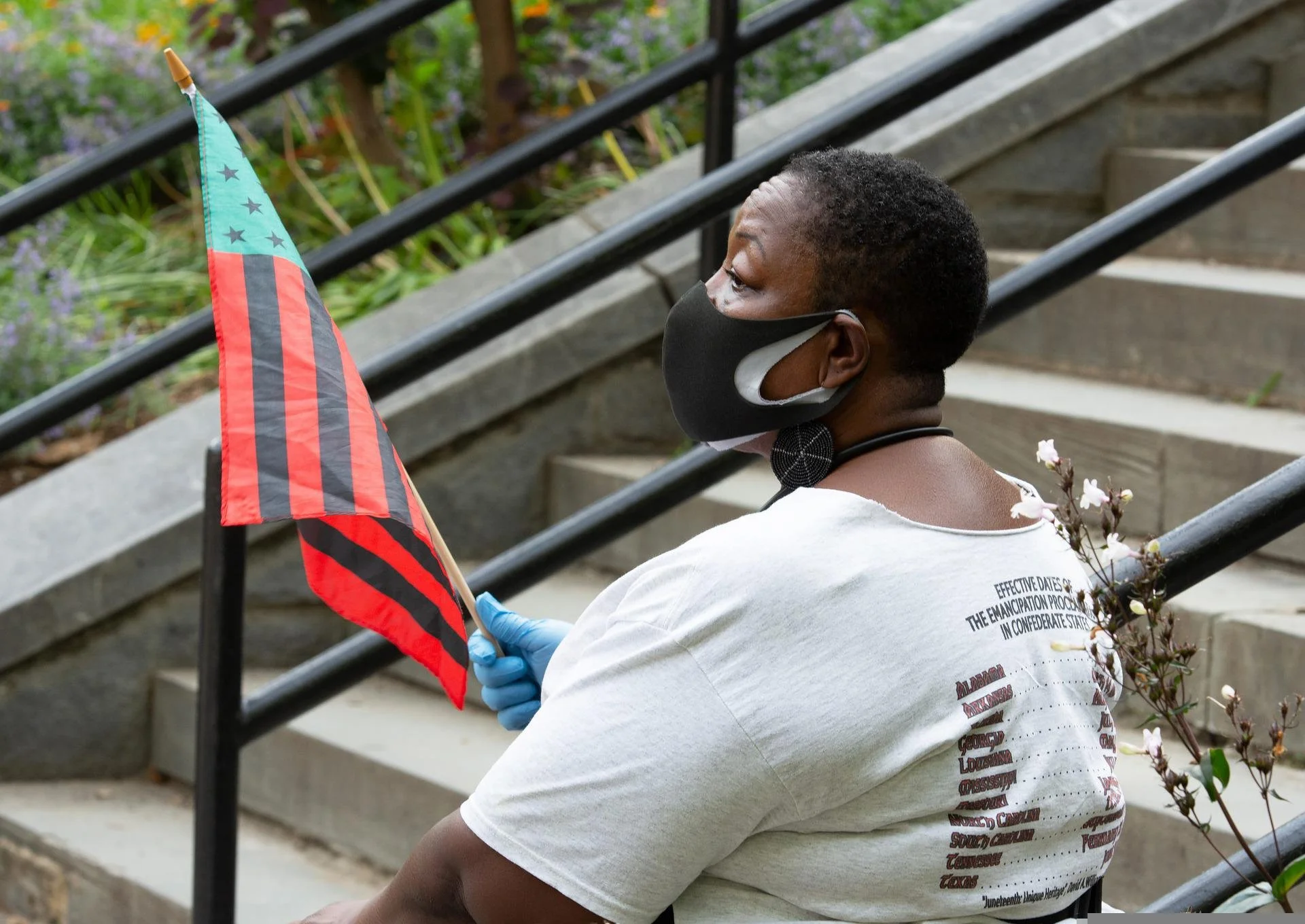A holiday or a commodity? What's happening with Juneteenth
WRITTEN BY AVERY OLIVER
Earlier this month, Walmart’s infamous “Juneteenth” ice cream made its rounds across social media garnering a plethora of reactions from Black people everywhere. Many found the action disrespectful and voiced their distaste for the decision. Yet, the production of Juneteenth-themed items did not stop there.
To the outside eye – and, more importantly, to someone who isn’t Black American – the outcry over Juneteenth-themed items may not easily be understood.
This may seem like a harmless way for various communities to partake in the day's events. However, the small and intra-communal celebrations that were almost exclusively observed in African American (specifically Texan) homes, fell victim to both misunderstanding and commercialization – especially with Juneteenth marked a federal holiday by President Biden last year.
A day that was meant to celebrate the freedom of Black Texans from slavery, was quickly commodified into something else. As Juneteenth has gained more attention, I have, as Black Texan, seen it transition from a small-scale celebration within Black communities to something almost unrecognizable.
From Juneteenth panels being hosted by a majority of non-Black people to discounts on furniture and other retail items, and themed ice cream and food – Juneteenth has slowly been uprooted from its traditional beginnings and has stepped into the spotlight as a commercialized event.
Unfortunately due to this, the rich history behind Juneteenth and its ongoing importance to Black Americans who are the living and breathing descendants of the slaves that built this country is being buried.
I was happy when Biden first declared Juneteenth a federal holiday last year. I believed that this would not only help educate others on the lesser-known history of Black Americans, but I felt it would be a way for all communities to come together and celebrate an important milestone in our history. Clearly, I was wrong.
It is important to recognize the history behind Juneteenth and shed light on why many Black Americans who previously celebrated it as a more personal event, are upset with its recent commercialization.
Emancipation Day celebration, June 19, 1900 held in "East Woods" on East 24th Street in Austin. Credit: Austin History Center.
Source: National Museum of African American History and Culture
In 1863, President Abraham Lincoln announced the Emancipation Proclamation which in short, ended slavery effectively. Unfortunately, this news was delayed in reaching enslaved people in Texas. The news of the Emancipation reached Texas two years later, on June 19, 1865, which led to Juneteenth becoming an important day in Black Texans’ history.
The reason why the commodification of Juneteenth is an issue is – if you were to ask most non-Black people in America to tell you the history behind Juneteenth, they probably would not be able to tell you.
The way the day has been misunderstood has done irreparable damage to the overall image of what it used to be and has harmed more Black American people than it has helped. All in all, while Biden’s notion to mark this a federal holiday came with good intentions, it has had the opposite impact.
When a day that was once unique to Black Americans begins to receive treatment similar to other holidays, it starts to lose its purpose. Juneteenth, at its root, is the celebration of freed enslaved Black Americans but more specifically freed Black Texans.
The improper festivities now centered around Juneteenth have downplayed the overall struggles of the freed enslaved Texans and their descendants. Like many struggles faced by African Americans today, due to things such as continuous racism and white supremacy, the commercialization of Juneteenth has found a way to once again erase us, and bury our plights.
Unfortunately, Juneteenth is just the tip of the iceberg regarding the ongoing problem of appropriation and commercialization of Black culture exhibited by non-Black people: Taking important aspects of our culture from our music, lingo, dance, etc., and watering it down to something unrecognizable and misused is something that by now, Black Americans are used to. And similar to how the appropriation of AAVE, our fashion, music, etc., works to erase the impact and achievements of Black people in various fields and industries, the near appropriation of Juneteenth is starting to do the same thing.
That said, there are still ways for allies to respectfully partake in the day and spread awareness without erasing the impact of Juneteenth. It is still possible to retain Juneteenth's legacy and importance.
Juneteenth in itself has a very personal connection to those it represents, as we are still affected by the laws that deemed our ancestors to be slaves. However, that does not mean that there aren't ways to respect the holiday.
If you are a non-Black person wanting to respectfully partake in the day, then the easiest thing to do would be to support Black-owned businesses. For years before Juneteenth was made a federal holiday, Black vendors and shops have always sold Juneteenth-themed materials. Unfortunately, with larger retailers and companies commercializing Juneteenth, most small Black vendors are ignored. However, buying from Black businesses, whether it is Juneteenth-related things or not, is one way to give back to Black communities if it is your goal to be respectful.
Donating to Black organizations, such as schools, libraries, bail funds, neighborhoods, youth groups, etc – if you are in the financial position to do so – is also a very helpful way to respectfully partake in Juneteenth celebrations without stepping over Black people. Looking up local Black organizations in your area that need donations, and even volunteering to help out in Black communities and events is a great way to celebrate Juneteenth.
The Dream Team needs your help to continue amplifying the voices and stories of Black youth and young adults working to transform silence into language and action. Can we count on your support?
In addition to that, supporting community organizers both in real life and on social media is a way to help. This ranges from sharing their posts and points, donating to them, or attending events hosted by Black community organizers both during and after Juneteenth.
Lastly, and most importantly, studying the history of Juneteenth and understanding the impact slavery still has on African Americans is absolutely pivotal to understanding this day. Juneteenth is more than just recognizing the liberation of freed slaves; it's also educating yourself on the issues and struggles their descendants face today.
For those who are not Black, Juneteenth calls for true allyship and understanding of our identity and heritage. It isn't just a day to buy ice cream, make a few posts on Instagram or be performative. It is a call to action to uplift those Black people around you if truly you want to be respectful about this day.
Lastly, your activism shouldn't be limited to Juneteenth. Standing up for African Americans and helping to dismantle the White supremacy shouldn't just be something done on Juneteenth.
The white supremacy that impacts Black Americans today is the same exact white supremacy responsible for our ancestors' enslavement years ago and is the reason Juneteenth exists. This Juneteenth, rather than support and uplift large corporations, lend an ear and hand to Black friends, colleagues and organizations now and always.
Avery Oliver (she/her) is a 25-year-old Black freelance writer from Dallas, Texas. She loves writing about things that affect her and people who look like her. She wants to use her voice to spread awareness.




